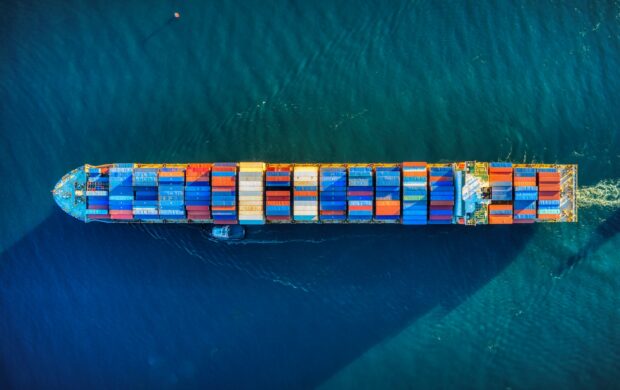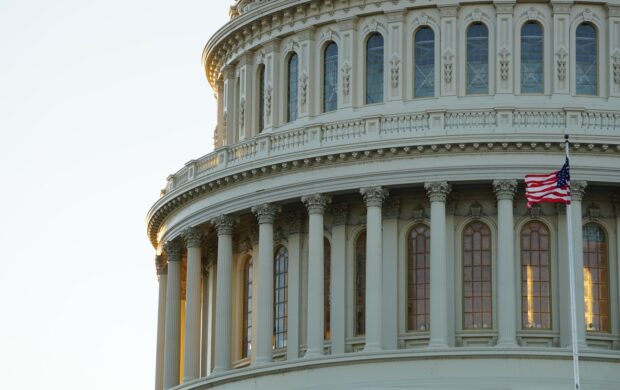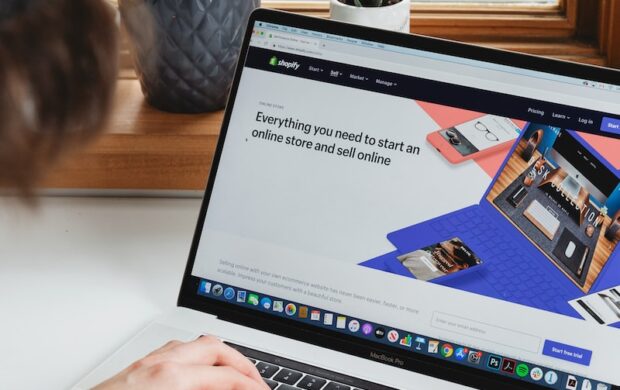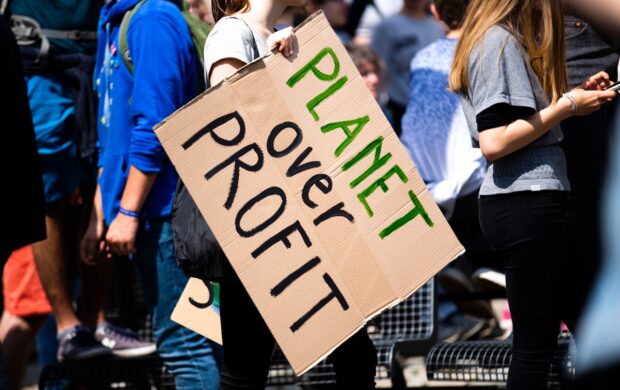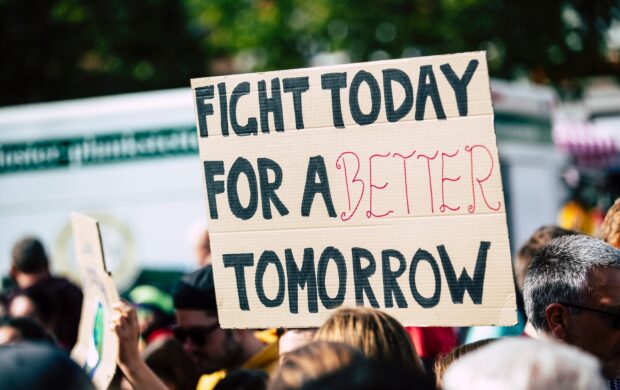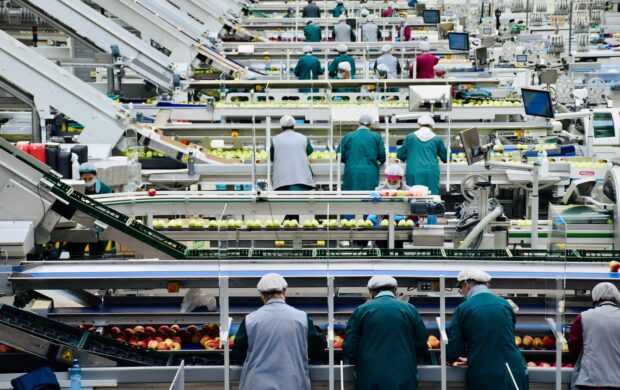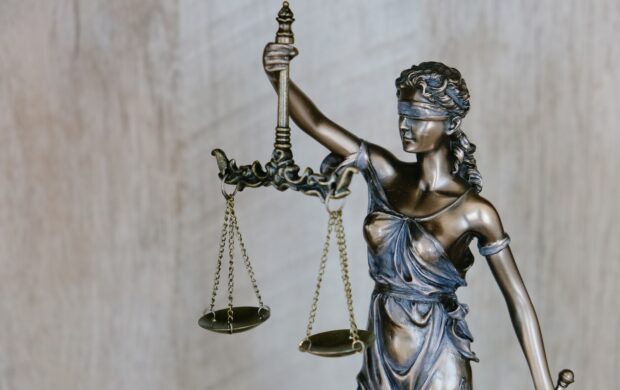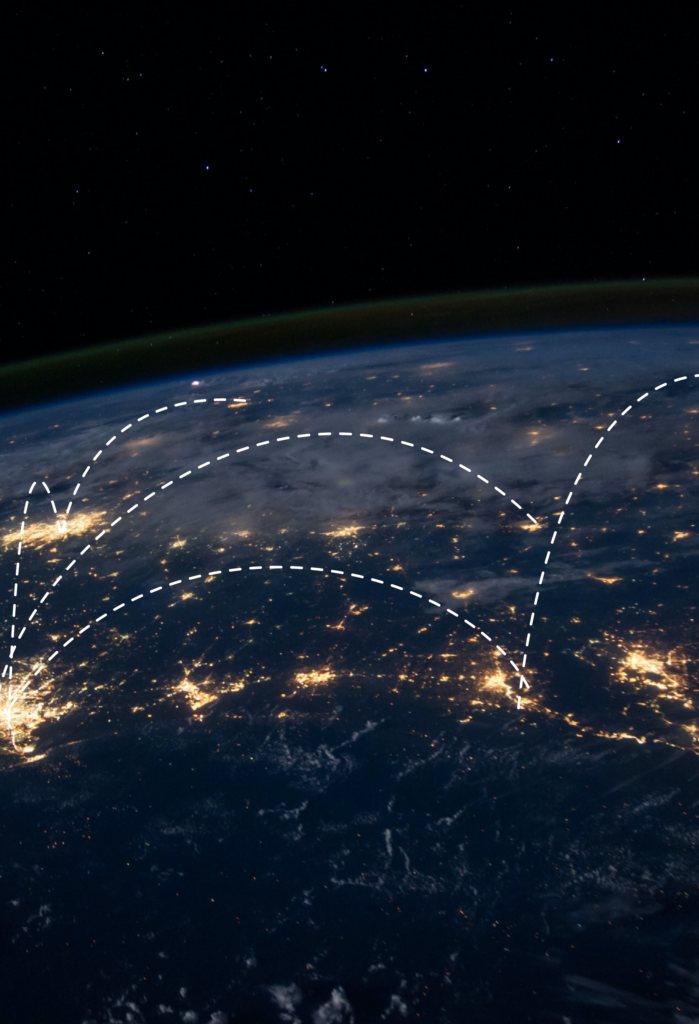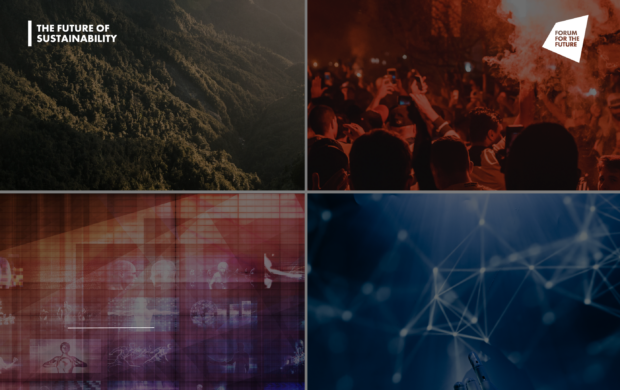Courage to Transform
The Future of Sustainability 2023 Report
Download as PDF With thanks to all partnersGold partner

The climate crisis. Inflation. Price volatility. Rapidly changing reporting and disclosure standards. Growing geopolitical tension. Right now, businesses face an extremely challenging operating environment.
In these immensely unsettled times, there is little guidance for businesses on what action can be taken, yet growing pressure on them to lead. This creates a risk that longer-term transformational efforts will be undermined or even derailed by a focus on short-term crisis management.
In a bid to enable leaders and change-makers to remain ambitious and focused on transformation, Forum for the Future’s latest
Future of Sustainability report, Courage to Transform, provides a new analysis of how businesses are responding to today’s crises.
It highlights:
- Four very different yet plausible ‘future trajectories’ emerging today
- Five key shifts businesses can make to transform why and how they operate
The Business Transition Trajectories
-
Profit Supreme: sees resistance to or opting out of change;
instead maintaining a focus on maximising short-term
shareholder value and profits -
Shallow Gestures: sees us attempt what we can, but
ultimately delivering only incremental progress that
will likely fall short of what’s needed -
Tech Optimism: sees us leverage technology, but
risk an overreliance on it as a solution to all problems -
Courage to Transform: sees businesses ask existential questions on why they exist and how they operate, ultimately unlocking the courage to make transformational changes commensurate with the scale of our social and environmental challenges.
The Trajectories are a futures tool intended to provoke a
deeper examination of the mindsets dictating how and why —
even whether —various actors respond to the crises we face.
This then allows you to observe — or imagine — where
transformational potential exists.
Taking each in turn:


Profit Supreme
Profit Supreme is characterised by the need to maximise
short-term shareholder value and profits above all else. Some hold the
perspective that integrating environmental and social
considerations into business operations might be considered a
violation of fiduciary duty. Others opt not to address
environmental and social concerns due to uncertainty over what
to do. Or some may choose to capitalise on opportunities arising
from a warming climate.
The cascading impacts of climate change—such as heatwaves,
droughts, floods, as well as biodiversity loss and inequality—are
perceived as being too distant from their current operations to be
considered a material risk to the business. Decision-making
power, authority, and influence remain primarily the same.
What you might hear:
“We will continue to maximise our profit from fossil fuel as long
as it remains a profitable endeavour. We anticipate being able
to exit at the right moment.”
Where are we seeing this mindset:
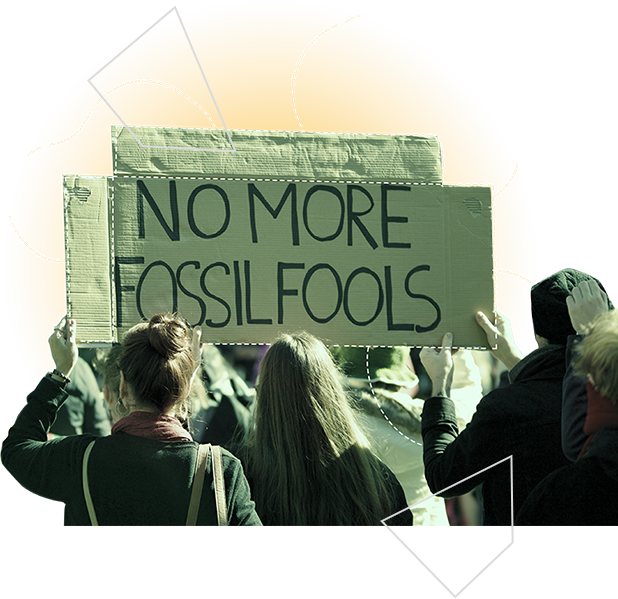
Shallow Gestures
Shallow Gestures is characterised by the mindset, ‘attempt what
we can.’ It’s here businesses showcase their determination to
address environmental and social crises, but struggle to navigate
the ‘trade-offs’ required between short-term profits and
longer-term investments — or divestments — that could foster
ecological and social resilience.
Tackling our environmental and social crises are primarily left to
voluntary market forces. People publicly advocate for and explain
the virtues of ‘win, win, win’ scenarios, but businesses broadly
maintain a ‘business as usual’ approach, with only incremental
shifts being made.
The cascading impacts of climate change — from extreme
heatwaves and droughts to floods, biodiversity loss and
worsening inequality — are anticipated, but it’s difficult to allocate
resources towards a suitable response.
What you might hear:
“We’ve set bold targets for transformation in… 2050.”
Where are we seeing this mindset:
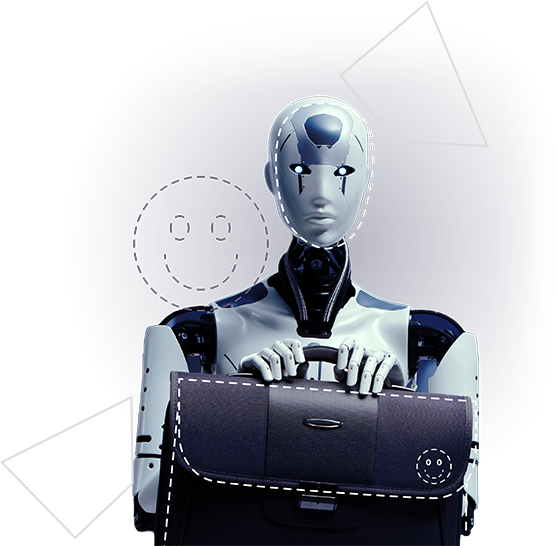
Tech Optimism
Tech Optimism is characterised by the harnessing of data and
technology to confront environmental and social issues. There’s
real optimism that tech innovation can prove game-changing.
Enterprises rely on agile, technology-driven platforms that
emphasise quick experimentation and emerge as crisis-driven
solution providers. Yet, technology’s progression can also
provoke challenges such as job displacement and the
underestimation of social cohesion in contributing to resilience.
The cascading impacts of climate change — such as extreme
heatwaves, droughts, floods, biodiversity loss and inequality — are
somewhat anticipated and there are signals of more distributed
decision-making power, authority, and influence.
What you might hear:
“There is too much doom and gloom around climate change.
Humanity has a long history of innovation and overcoming
challenges. Have faith.”
Where are we seeing this mindset:

Courage to Transform
Courage to Transform is characterised by a fundamental reset in
the purpose of business, enabling transformational responses
commensurate with the social and environmental crises we face.
Businesses, governments, financial actors and civic leaders
recognise that continuing to prioritise profit at the expense of
human and planetary well-being is no longer tenable. While there
is no blueprint, market actors are beginning to take action to
address the root causes of issues.
The cascading impacts of climate change are anticipated and
resources are being allocated to adequately prepare for them.
Decision-making power, authority, and influence are becoming
more distributed, contributing to long-term resilience.
What you might hear:
“We made the rules. We realised that we can change them!”
Where are we seeing this mindset:
Five Principles to Transform
Through Crisis
Forum for the Future believes that only the Courage to
Transform trajectory will deliver the just transition
urgently needed if we are to avert the worst of the social,
environmental and biodiversity crises we face.
So where can businesses focus?
Business leadership and innovation has become critical in determining whether
we will be successful in creating a just and regenerative future in which both
people and the planet can thrive.
Yet conventional ‘sustainability’ strategies and tick-box approaches to ESG are falling
short of the systemic and urgent transformation needed. Transformation amid crisis
cannot be achieved alone; afterall, systemic challenges require systemic approaches.
It can seem daunting; that’s why we’re honing focus on enabling five key shifts in business.

Continuing this inquiry
Forum for the Future will continue to explore aspects and implications of the report through regular insights, published on the Futures Centre. These insights will enable businesses, governments, and changemakers to dive deeper into the shifts needed to create a better future.
They will explore key questions, including:
- What might it practically mean to realise the fourth trajectory, Courage to Transform? How can we harness the potential to create change at scale and pace?
- Why is it crucial to recognise that profit cannot come at the expense of human and planetary well-being? How are businesses fundamentally rethinking how they respond to sustainability challenges?
- How are new mindsets, practices, decisions, and management contributing to more resilient models of value creation?
- How does this inquiry and the guidance offered contribute to shifting narratives on climate risk and the role of businesses in enabling long-term change?
Join us as we share insights over September 2023 and follow the inquiry @Forum4theFuture
@FuturesCentre
Explore the insights:
Using the Business Transition Trajectories
Download the guideAs the world more frequently and more severely experiences the impacts of climate change, tackling the crisis will inevitably become more complex. Businesses require practical steps and pathways to navigate this.
To supplement this report, we aim to provide a guide to bring the Business Transition Trajectories to life within your team or organisation.
Explore how you can recognise and understand the different mindsets at play that contribute to resisting or enabling responses to crisis and begin to imagine where transformative potential exists within your team, organisation, or sector.
It’s time for courage. Let’s explore the future, together
The future is not something that happens to us, but is something that we can actively create with
every action we take, and with every choice we make. Forum for the Future believes that Courage to
Transform must become the dominant version of our future if we’re to deliver systemic change at scale and
pace. If your business is interested in transforming, please get in touch.
With thanks
to our partners
-
Sustainability has never been so high on the business agenda, yet never so much challenged by differing expectations, beliefs and mindsets. Very few leaders understand the depth of change required to manage the current risks, and especially the one of climate change. The 'Future of Sustainability' report is a helpful orientation for all business leaders to reflect on where they are today, and to help navigate their journey towards a real transformation.
-
The Future of Sustainability offers a way of navigating the growing polycrisis. We need to shift our focus from mitigating risk to building resilience. While our analysis shows four possible futures emerging for business, we feel only one has the potential to create the socially just and regenerative future we urgently need. Realising this future will mean focusing on five key shifts.
-
More than ever before, there’s an expectation that businesses should be proactive and be delivering meaningful change when it comes to sustainability. For a long time, this agenda has been treated as separate to commercial priorities, global market developments and regulatory pressures, but it’s clear that sustainability needs to become part of the decisions and discussions impacting future business success and efficiency
-
Today’s challenges requires an alliance of businesses and organisations with the same objective: the most sustainable world for all. Together, we must promote actions that can support local communities, protect our environment, and redistribute value creation.
-
Contributing to addressing the UK’s ecological and social challenges is at the heart of The Crown Estate’s strategy. The Future of Sustainability report provides relevant and timely insight into the most pressing barriers to sustainability today, and explores the shifts needed for deeper transformation in future. It signals a shift in focus from risk to resilience, highlighting the need to face into systemic challenges and to make shifts in decision-making dynamics. Great stimulus for a meaningful conversation with other change makers in businesses that seek to be part of making things happen.
-
There’s not enough focus right now on how businesses can most effectively achieve their sustainability goals against a backdrop of ongoing disruption. Futures tools, as used in this report, can help leaders to anticipate and respond in smarter ways to the volatility ahead. Understanding the different futures you could face clarifies the role your business could play in creating them. This is key to resetting how you understand and respond to the social and environmental challenges shaping the health of your operating context.

